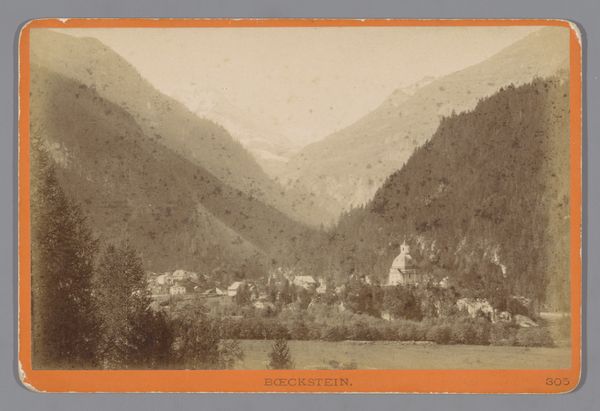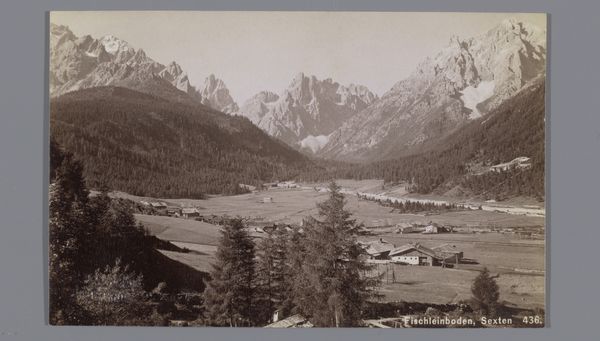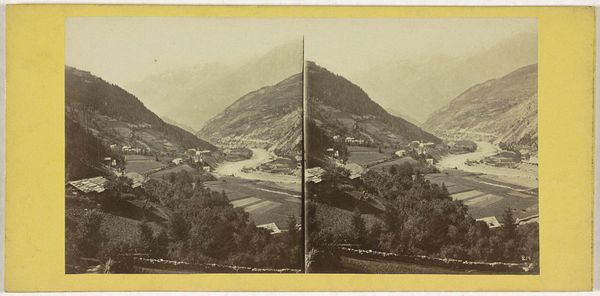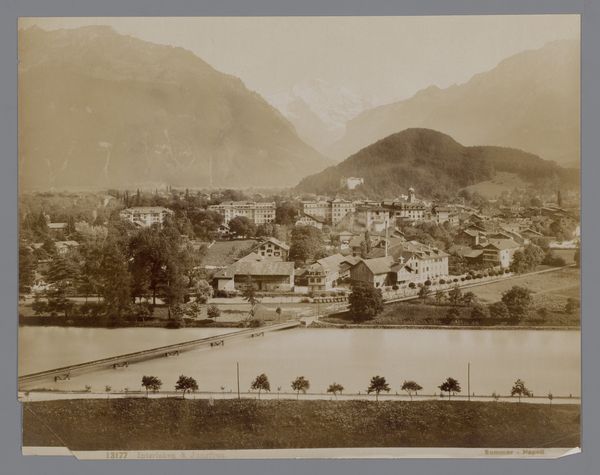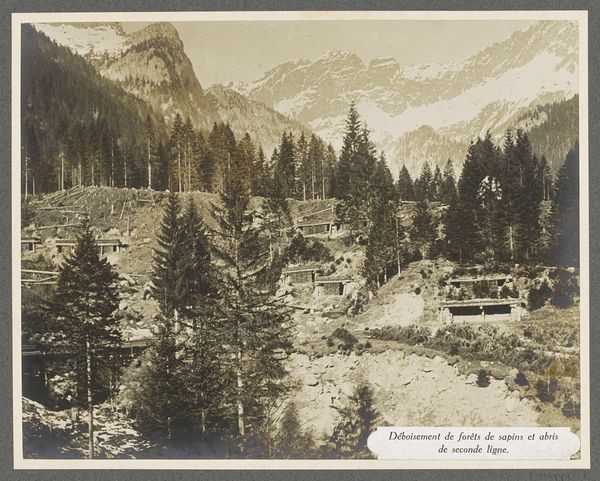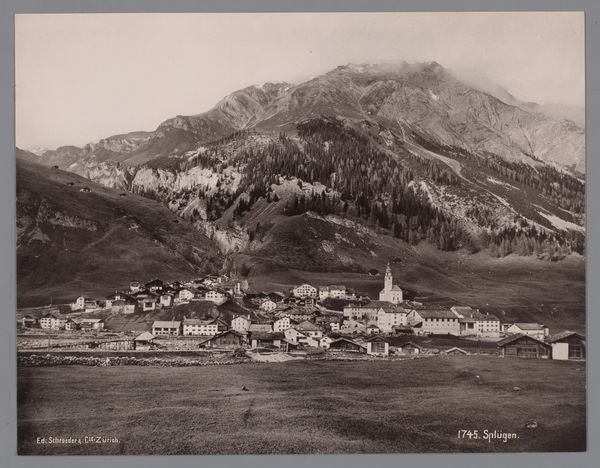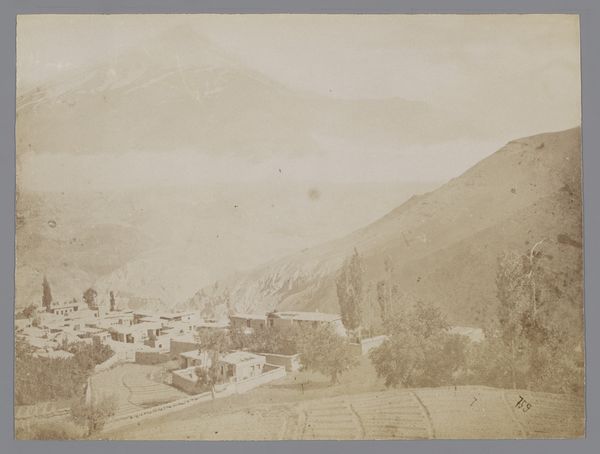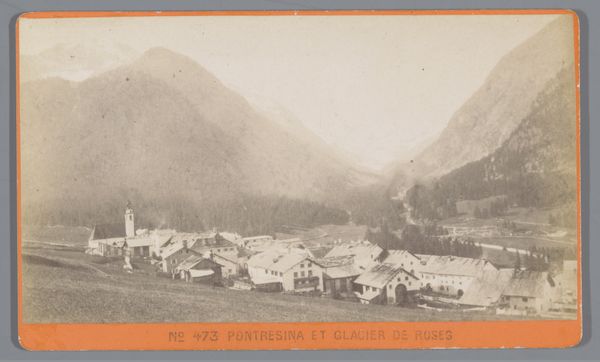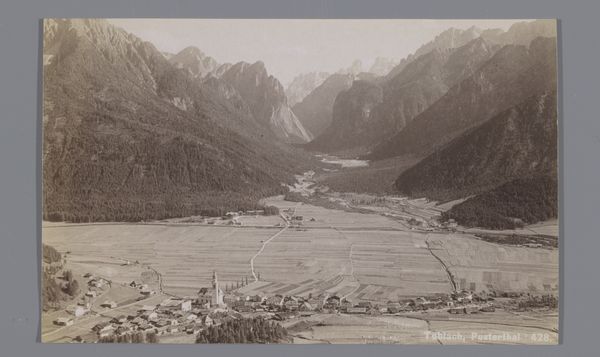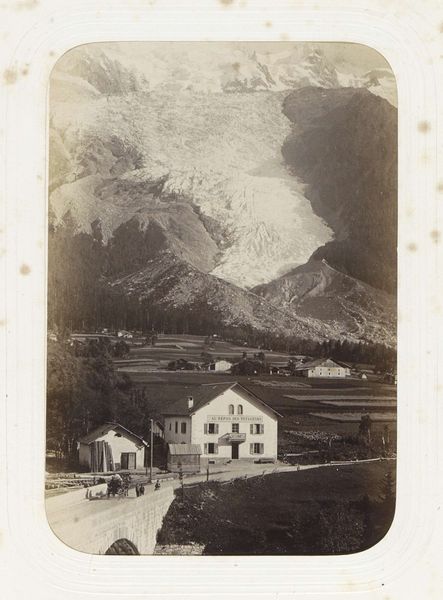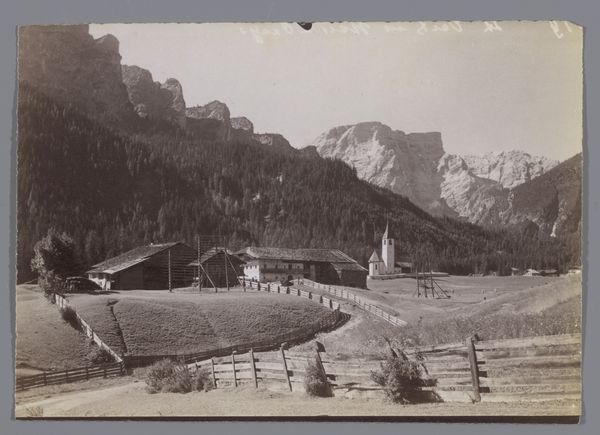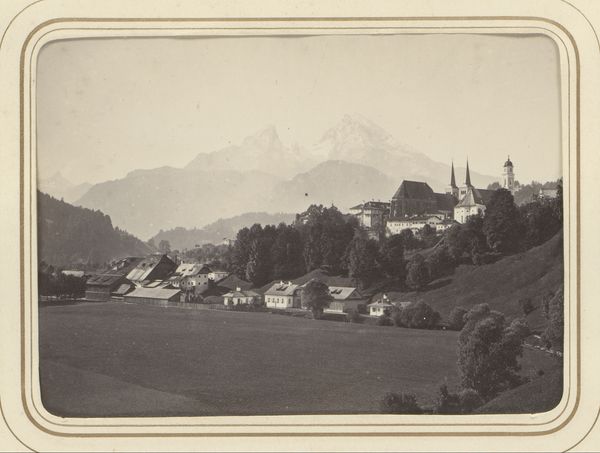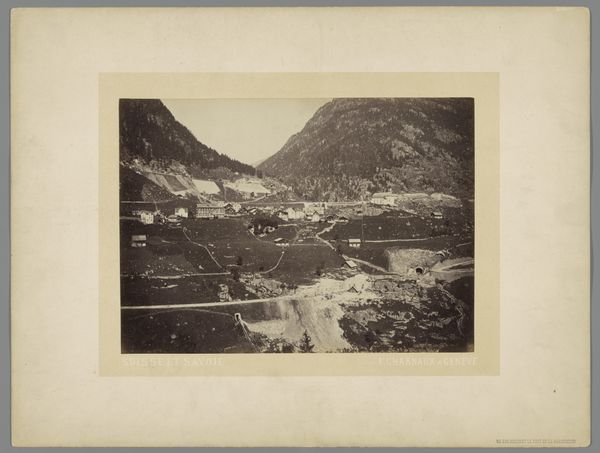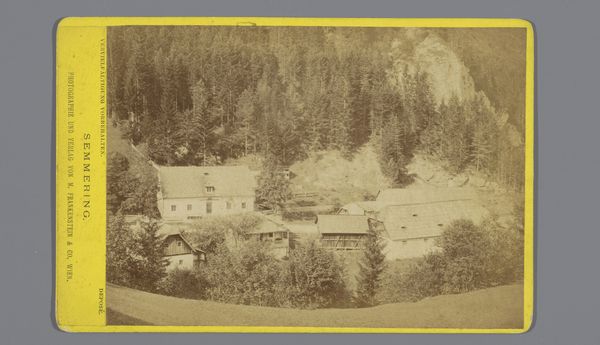
photography, gelatin-silver-print
#
pictorialism
#
landscape
#
photography
#
mountain
#
gelatin-silver-print
Dimensions: height 103 mm, width 154 mm
Copyright: Rijks Museum: Open Domain
Editor: This gelatin-silver print, attributed to Alexander Flury and titled "Gezicht op Pontresina in Zwitserland," captures a view of a Swiss village, framed by imposing mountains. Dating back to around 1875-1885, the sepia tones lend it a somewhat dreamlike quality. The village seems so neatly nestled within the landscape. What strikes you most about its composition and execution? Curator: Formally, the photograph is interesting for its balance between texture and tone. Note the high contrast between the granular details of the mountains and the smoother, almost velvety, rendition of the sky. This contrast helps define the spatial relationships within the image, guiding the eye from the foreground village up to the imposing mountain peaks. It appears Flury has skillfully managed depth-of-field to render both near and far elements with relatively sharp focus. The tonal range is somewhat limited which impacts our reading, however, the texture across the photographic plane is dynamic. Editor: Yes, I see how that interplay between sharpness and softness creates depth. Does this considered composition relate to pictorialism? Curator: Indeed, it certainly alludes to pictorialist intentions. Pictorialism in photography often attempted to mimic the aesthetic qualities of painting. Consider how Flury has controlled light and shadow to emphasize certain areas and subordinate others. Pictorialists would have focused on these kinds of techniques. Note also how the placement of the village subtly offsets the composition which echoes painting's strategies. Do you feel it succeeds as a visual composition, rather than merely as documentation? Editor: Absolutely. Looking at the texture, especially, I can see the artistic choice beyond simply recording a scene. It's almost a constructed reality. Thank you, that perspective really opened my eyes to appreciate the image on a deeper level. Curator: You're most welcome. It is important to always focus on composition and materiality, not only cultural narratives. I will think about it from an empirical point of view moving forward.
Comments
No comments
Be the first to comment and join the conversation on the ultimate creative platform.
